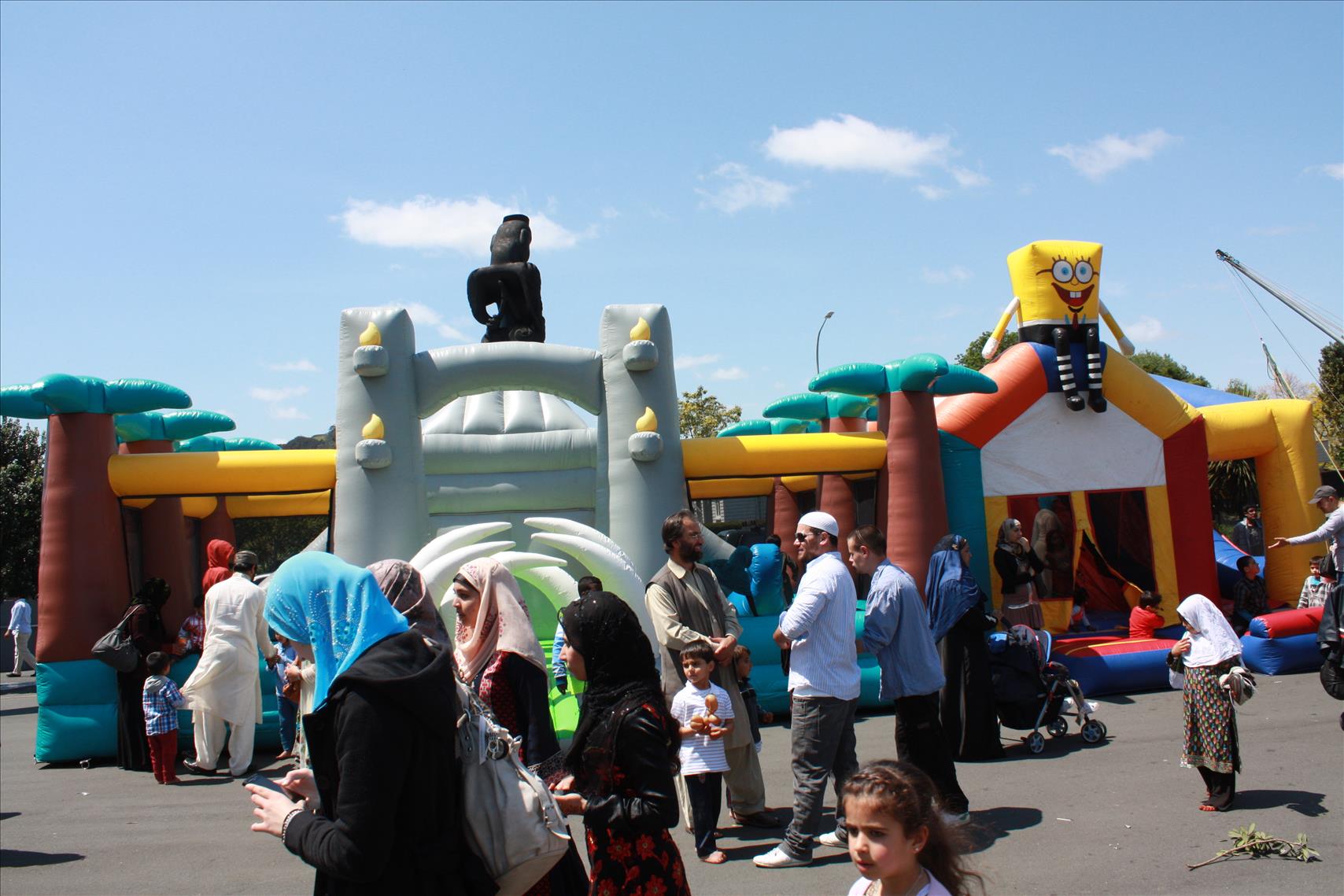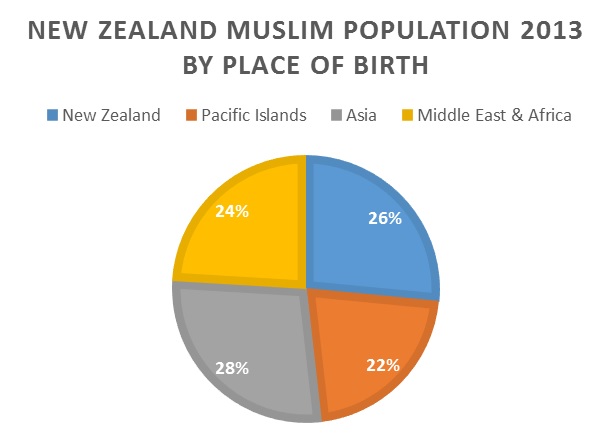“hope that the recent ‘Arab Spring’ may foster new Muslim identities” yes, yes, Islamic State was birthed from this, something that many Kiwi’s support and went to fight in, hence the need for this site.
The Quran assures them that all New Zealand Muslims will be rewarded for working together with their terrorists to spread sharia throughout the world.
8:72. Indeed, those who have believed and emigrated and fought with their wealth and lives in the cause of God and those who gave shelter and aided – they are allies of one another.
This from Indian News Link:

‘Whither Islam in New Zealand?’ is a popular question these days in view of the recent events that occurred at the Avondale Mosque in Auckland.
This question is also relevant with the rising evidence of radicalised converts to the Muslim faith dying abroad.
I must say that expenditure for secret surveillance of local Muslims and Mosques by the New Zealand Government is unnecessary, counter-productive and represents a massive degree of political overkill.
There are only 47,000 Muslims in the entire country, most of who are new migrants and refugees representing a myriad of different nationalities and linguistic groups. More than 42 nationalities are represented within the Muslim population in New Zealand.
Positive perception
But Muslim individuals and families have been quietly living here since the 1850s without undermining the state in any fashion. In fact, local Muslims have been active in Interfaith Dialogue with Christian and Jewish leaders for over two decades and New Zealand is perceived positively by Muslim societies and nations.
Rather than waste taxpayer dollars on such bottomless surveillance, this money could be better invested on providing education for foreign Ulema (Islamic Clergy).
Parallel precedent
There is a useful parallel precedent in our broader Anglo-Britannic heritage.
In the 18th century, the British Government feared that the resurgent power and influence of Roman Catholicism, particularly as many of their Clergy were trained in France, which was Britain’s political and military enemy at that time.
This paranoia however led to the joint formation of the St Patrick’s College at Maynooth, providing a top educational venue and a specifically Catholic space within the British Isles, where Catholic priests could be trained in English language within the framework of British academia.
Bosnian Model
This initiative was undertaken and maintained over a long period, through the 19th Century, notwithstanding the fact that most of British public was resolutely anti-Catholic in sentiment and political prejudice.
Another model could be Bosnia. When the (Catholic) Austrians assumed power in that country in 1878, they kept the existing Islamic institutions in place but codified standards and training along modern lines, facilitating the formation of modern Islam there today.
Islam in France
Over the past two decades, even France, vocal bastion of liberal secularism, has taken to training Ulema for French Mosques at the Institut Europeen des Sciences Humaines in Saint-Leger-de-Fougeret, deep in the heart of Burgundy.
Such institutions equip Mosque leaders with a firm grasp of the local language, and an informed perspective and knowledge of modern socio-cultural realities.
FIANZ legitimacy
The changes to the New Zealand Muslim community since 1979 were unprecedented, since it never had so many Muslim adherents.
The historical background of New Zealand as a British colony have set the challenges of ‘Modernity’ and as with most Muslim groups encountering lie under non-Muslim rule, the most significant challenges passed are those in the areas of social life, institutions and ethics. In the case of Muslim communal organisation, the creation of the Federation of Islamic Associations of New Zealand (FIANZ) does serve as a useful milestone, giving local Muslims a degree of legitimacy at the national level.
The appointment of Sheikh Khalid Hafiz (1938-1999) as the Senior Spiritual Advisor in 1982 and the formation of the Ulema Board following his death are also important dates.
I would still like to see some sort of Rais-al-Ulema or Mufti formally elected, albeit for a limited period, to enhance and invigorate not only the broad moral code but also the religious administration of New Zealand secular Muslim organisations.
Territorial dimension
It is important to note quickly the critical significance of the territorial dimension for Muslim minorities in a non-Muslim environment, namely an Islamic topography.
Muslims of New Zealand cannot, I believe, exist as an abstract idea, a community without roots or a physical presence in society.
Islam in this land can be sustained only if Muslims maintain a physical living space.
Migration and transience invariably weakens this maturity of course.
In contrast to the increasingly sluggish, aging immigrant communal elite, a number of local converts to Islam have established themselves, the examples of which are Ishaq Te Amorangi Morgan, the Aotearoa Maori Muslim Association, Sister Lyla Al Alawi and the South Island Converts Association in Christchurch.

Unique challenges
There is no longer a need to give Islam in New Zealand a uniformly foreign presentation.
In his book titled, ‘Muqaddimah,’ African-Arab Historian Mohammed Ibn Khaldun (1332– 1406) sagely observed, “The past resembles the future more than one drop of water resembles another.”
There is hope that the recent ‘Arab Spring’ may foster new Muslim identities emanating from Arabia and revolve around the positive aspects of Modernity based on local cultures.
The intellectual responses of New Zealand Muslims to the unique challenges of Modernity over the past 30 years or so have laid down a positive foundation for engaging similar issues in the following decades.
One can only hope that the structure built on this foundation will be substantial rather than decorative.
Hajji Abdullah Drury is the author of ‘Islam in New Zealand,’ which brings out the relevance of the Muslim community in this country, as indeed the above article illustrates. His views do not reflect those of Indian Newslink but may stimulate a healthy debate. Copies of the Book can be purchased from Mr Drury who lives in Hamilton.
Modernity challenges New Zealand Muslims
